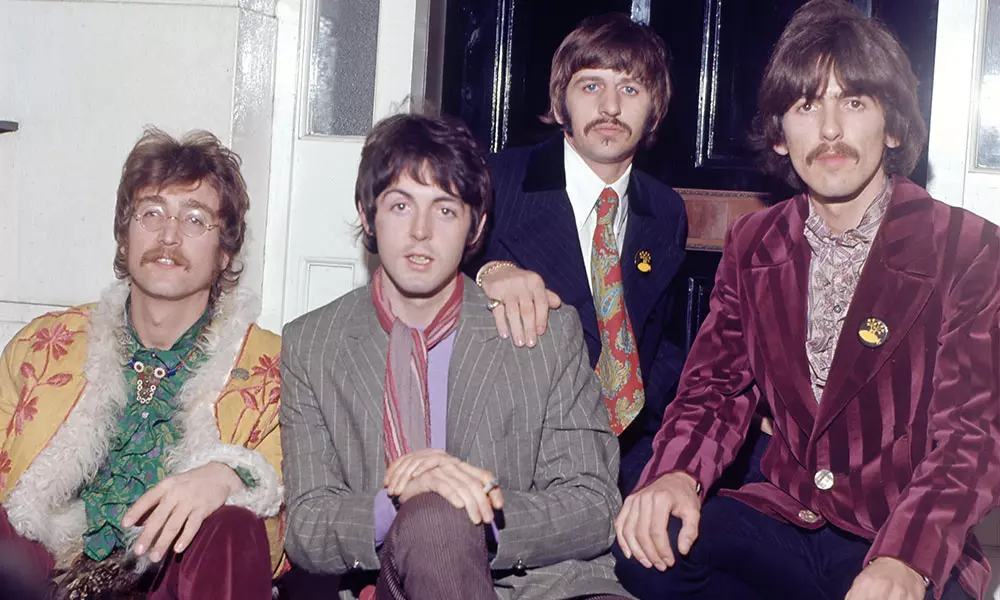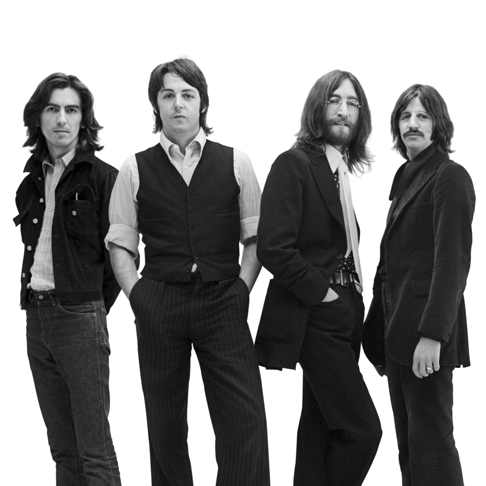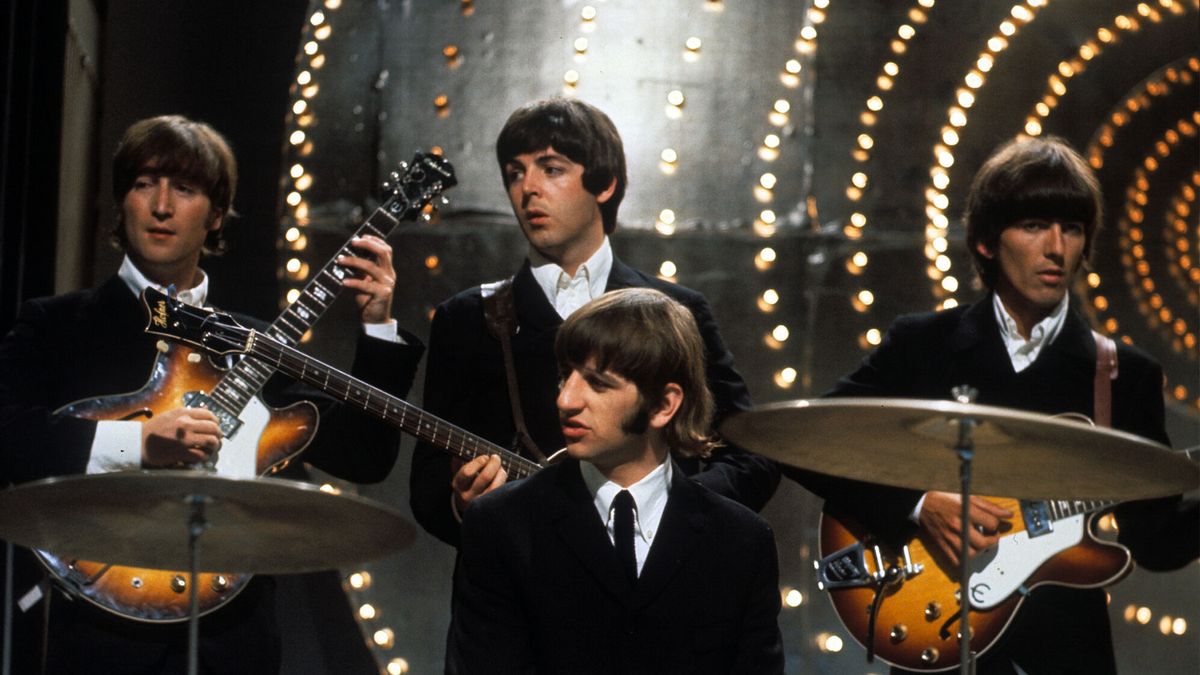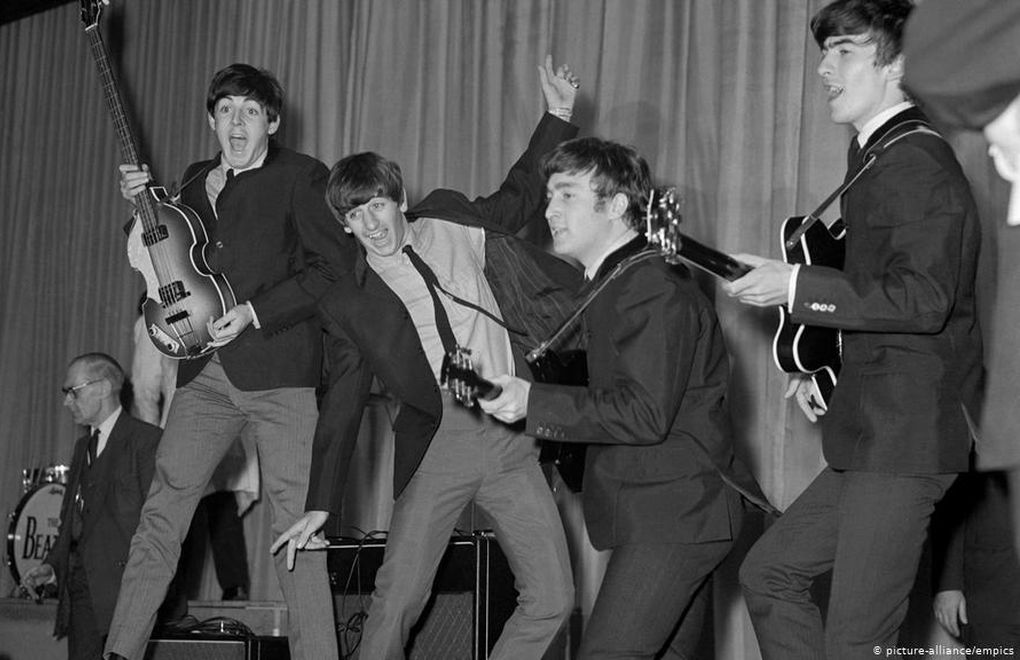Rock 'n' Roll Music The Beatles
The Beatles
Led by primary songwriters Lennon and McCartney, the Beatles evolved from Lennon's earlier group, the Quarrymen. They established their reputation by performing in clubs in Liverpool and Hamburg over a span of three years from 1960, initially with Stuart Sutcliffe on bass. The core trio of Lennon, McCartney, and Harrison, who had been together since 1958, experienced several changes in drummers, including Pete Best, before inviting Starr to join them in 1962.
Manager Brian Epstein shaped them into a professional act, and producer George Martin guided and refined their recordings, significantly boosting their domestic success after they signed with EMI Records and scored their first hit, "Love Me Do," in late 1962. As their popularity soared, leading to the intense fan frenzy known as "Beatlemania," the band earned the moniker "the Fab Four." Epstein, Martin, or another member of the band's entourage was occasionally informally referred to as the "fifth Beatle."
On February 11, 1963, the Beatles recorded ten songs during a single studio session for their debut LP, "Please Please Me." This was complemented by the four tracks already released on their first two singles. Initially considering a live recording at The Cavern Club, Martin deemed the building's acoustics inadequate. Instead, he opted for a simulated "live" album with minimal production, executed in a "single marathon session at Abbey Road." Following the moderate success of "Love Me Do," the single "Please Please Me" was released in January 1963, two months ahead of the album. It achieved the number one spot on every UK chart except Record Retailer, where it peaked at number two.
Reflecting on how the Beatles "rushed to deliver a debut album, bashing out 'Please Please Me' in a day," AllMusic critic Stephen Thomas Erlewine remarked, "Decades after its release, the album still sounds fresh, precisely because of its intense origins." Lennon mentioned that little thought went into composition at the time; he and McCartney were "just writing songs à la Everly Brothers, à la Buddy Holly, pop songs with no more thought of them than that – to create a sound. And the words were almost irrelevant."
Released in March 1963, "Please Please Me" marked the beginning of an extraordinary streak for the Beatles, becoming the first of eleven consecutive albums by the band to reach number one in the United Kingdom. Following this, their third single, "From Me to You," was released in April and initiated an almost unbroken series of seventeen British number-one singles. This success included all but one of the eighteen singles they released over the next six years. The band's fourth single, "She Loves You," was issued in August and achieved record-breaking sales, becoming the fastest-selling record in the UK up to that point by selling three-quarters of a million copies in under four weeks. It not only became their first single to reach a million copies in sales but also held the title of the biggest-selling record in the UK until 1978.
EMI's American subsidiary, Capitol Records, impeded the release of the Beatles' music in the United States for over a year by initially refusing to issue their music, including their first three singles. Simultaneous negotiations with the independent US label Vee-Jay resulted in the release of some songs in 1963. Vee-Jay completed preparations for the album "Introducing... The Beatles," which included most of the songs from Parlophone's "Please Please Me," but a management shake-up prevented the album from being released. Upon the revelation that the label did not report royalties on their sales, the license that Vee-Jay had signed with EMI was voided. A new license was then granted to the Swan label for the single "She Loves You." Although the record received some airplay in the Tidewater area of Virginia from Gene Loving of radio station WGH and was featured on the "Rate-a-Record" segment of American Bandstand, it failed to gain nationwide popularity.
In July, the Beatles' second film, "Help!," directed once again by Lester, was released. Described as "mainly a relentless spoof of Bond," it elicited a mixed response from both reviewers and the band. McCartney expressed, "Help! was great but it wasn't our film – we were sort of guest stars. It was fun, but basically, as an idea for a film, it was a bit wrong." The soundtrack was largely influenced by Lennon, who wrote and sang lead on most of its songs, including the two singles: "Help!" and "Ticket to Ride."
The Beatles' fifth studio LP, the album mirrored A Hard Day's Night by featuring soundtrack songs on side one and additional songs from the same sessions on side two. With the exception of two covers, "Act Naturally" and "Dizzy Miss Lizzy," which were the last covers the band would include on an album (aside from Let It Be's brief rendition of the traditional Liverpool folk song "Maggie Mae"), the LP consisted entirely of original material. The band expanded their use of vocal overdubs on Help! and incorporated classical instruments into some arrangements, such as a string quartet on the pop ballad "Yesterday." Composed by and sung by McCartney, with none of the other Beatles performing on the recording, "Yesterday" has inspired the most cover versions of any song ever written. Help! marked a milestone as the Beatles became the first rock group to be nominated for a Grammy Award for Album of the Year.
The group's third US tour opened with a performance before a world-record crowd of 55,600 at New York's Shea Stadium on 15 August – "perhaps the most famous of all Beatles' concerts", in Lewisohn's description.A further nine successful concerts followed in other American cities. At a show in Atlanta, the Beatles gave one of the first live performances ever to make use of a foldback system of on-stage monitor speakers. Towards the end of the tour, they met with Elvis Presley, a foundational musical influence on the band, who invited them to his home in Beverly Hills.
In September 1965, the American Saturday-morning cartoon series, "The Beatles," was launched, echoing the slapstick antics reminiscent of "A Hard Day's Night" over its two-year original run. This series marked a historical milestone as the first weekly television series to feature animated versions of real, living people.
The information you provided highlights a notable development in The Beatles' career in September 1965, with the launch of the American Saturday-morning cartoon series, "The Beatles." It's interesting to note that the series echoed the slapstick antics seen in "A Hard Day's Night" and ran for two years. The mention of the series being a historical milestone as the first weekly television series to feature animated versions of real, living people adds a unique aspect to the band's influence on popular culture. If you have any specific questions or if there's anything else you'd like to include or modify, feel free to let me know!
Rubber Soul showcased a blend of collaborative songwriting between Lennon and McCartney, featuring distinct compositions from each, although they continued to share official credit. One standout track, "In My Life," became a highlight of the entire Lennon–McCartney catalogue, with both later claiming lead authorship. George Harrison regarded Rubber Soul as his "favorite album," and Ringo Starr referred to it as the "departure record." Paul McCartney expressed the sentiment that after their "cute period," it was time to expand.
However, recording engineer Norman Smith later observed signs of growing conflict within the group during the studio sessions. He noted that "the clash between John and Paul was becoming obvious" and stated that "as far as Paul was concerned, George could do no right." This insight provides a glimpse into the evolving dynamics within the Beatles during the creation of Rubber Soul.
- The Beatles at Shea Stadium (1966): Captures the Beatles' iconic performance at Shea Stadium in 1965, showcasing the frenzy and excitement of Beatlemania.
- Let It Be (1970): A documentary film showcasing the recording sessions of the "Let It Be" album, offering an intimate look at the band's dynamics during this period.
- The Compleat Beatles (1982): A comprehensive documentary that chronicles the entire career of The Beatles, from their early days to their breakup.
- It Was Twenty Years Ago Today (1987): Focuses on the making and impact of the "Sgt. Pepper's Lonely Hearts Club Band" album, providing insights into its cultural significance.
- The Beatles Anthology (1995): A landmark documentary series featuring in-depth interviews with the surviving members and archival footage, covering the entire Beatles story.
- The Beatles: 1+ (2015): A collection of digitally restored music videos accompanying the Beatles' hit singles from the "1" album.
- The Beatles: Eight Days a Week (2016): Explores the phenomenon of Beatlemania and the band's touring years, directed by Ron Howard.
- The Beatles: Get Back (2021): A documentary directed by Peter Jackson, utilizing previously unreleased footage, providing an intimate look at the recording sessions of the "Let It Be" album.

References
- Hasted 2017, p. 425.
- ^ Frontani 2007, p. 125.
- ^ Jump up to:
- a b Frontani 2007, p. 157.
- ^ Siggins, Gerard (7 February 2016). "Yeah, Yeah, Yeah! Rare footage of the Beatles's Dublin performance". Irish Independent. Archived from the original on 9 November 2019. Retrieved 1 December 2017.
- ^ Hotten, Russell (4 October 2012). "The Beatles at 50: From Fab Four to fabulously wealthy". BBC News. Archived from the original on 12 March 2013. Retrieved 28 January 2013.
- ^ "Greatest of All Time Artists". Billboard. Retrieved 21 March 2023.
- ^ Spitz 2005, pp. 47–52.
- ^ Spitz 2005, pp. 93–99.
- ^ Miles 1997, p. 47; Spitz 2005, p. 127.
- ^ Miles 1997, p. 47.
- ^ Lewisohn 1992, p. 13.
- ^ Harry 2000a, p. 103.
- ^ Lewisohn 1992, p. 17.
- ^ Harry 2000b, pp. 742–743.
- ^ Smith, Alan (9 August 1963). "The Beatles, Paul McCartney: Close-Up on Paul McCartney, a Beatle". New Musical Express. London, England: NME Networks.












































